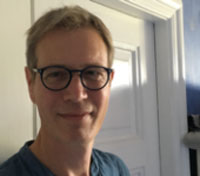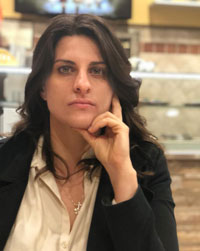Why a Candidates Committee in the first place? A big part of the mission that inspired Margaret Black (USA) to found this committee is to provide a space within IARPP that supports and creates a forum for expression for younger, less embedded viewpoints. We continue to make room for voices from different parts of the world.
An important contribution that the Candidates Committee makes to IARPP is the Candidates Panel, presented at each annual IARPP conference, where candidates and early-career analysts (within five years of having completed training) have an opportunity to present at the IARPP annual conference, with mentoring and support provided by our committee members throughout the process of preparing their presentations. When reviewing papers for this panel, we keep an eye out for proposals from countries where psychoanalysis is less a part of the cultural backdrop, as opposed to countries where psychoanalysis found its origins.
Our annual Candidates Webinar, running three weeks, is hosted by an experienced teacher from our international relational community. Past webinars have been taught by, among others, Gianni Nebbiosi and Susi Federici (Italy), Galit Atlas, Sandra Buechler, Margaret Crastnopol, Jody Davies, Irwin Hoffman and Paul Wachtel (all USA). As soon as one Candidates Webinar comes to an end, we excitedly begin thinking of who might lead the next.
Our forthcoming webinar, to begin in late January, will center on three papers by Sally Swartz (South Africa). Sally is an active member of the IARPP community; some of you may have read her papers, her book on Winnicott, or have met her in an IARPP colloquium. We will be digging deep (diving as to looking at a wrecked ship, as Sally puts it in one of her drafts) into the coloniality of psychoanalysis and learning about our practice from colonial states of mind – coloniality as a state of mind that has survived colonialism and is integrated in our minds and culture, often outside our awareness.
Who gets to talk or has access to knowledge and the creation of it? Sally examines how we repeatedly find ourselves in colonial situations, whether or not we are aware of it. IARPP and our relational theory increasingly recognize the relational turn as an important way to overcome colonial aspects of dominance vs. dependence, of the privileged knowers vs. subjects/objects with less knowledge. The relational analyst (or therapist) is a humbler, more vulnerable human practitioner than before. Even so, are our consulting rooms not in fact not rendered “white” by virtue of location, decoration and population? Sally will help us explore these challenging issues as we read her papers, together bringing our diverse perspectives and experiences to our group discussions.
As Malin Fors (Sweden), author of A Grammar of Power, pointed out at a recent IARPP conference: All those serving, cleaning and taking care of us at the hotel are non-white, and nearly all of us who are presenting and participating are of “white” heritage. And if it were otherwise, how would this feel? We are hopeful that Sally will offer a fresh point of view so that the 75 participating candidates, experiencing different situations in their trainings at institutes around the world, can participate in generative discussions and gain new insights together.
Look for an email announcement in the new year, containing details and registration information for the webinar.
As we wrote in August´s IARPP Bulletin, our July symposium had nearly 300 participants. About a third were candidates from Greece! Konstantinos Mouchalos (Greece), temporary co-chair of the Candidates Committee, fondly pointed this out, leading to our puzzlement over how this became possible and making us curious about what we can learn from the two enthusiastic Greek chapters. Remember, our webinars are limited to only 75 participants. We hope to engage candidates from as many nations and training sites as possible in future webinars and panels. Please help us spread the word at your institutes so we can include candidates and early-career analysts from as many countries as possible.
Let us hope there will be an “in real life” conference this coming June in Los Angeles. We hope to see you there at our Candidates Reception and the forementioned Candidates Panel.
Erik Fagerberg and Fabia Banella, co-chairs
 Erik Fagerberg
Erik Fagerberg
Malmö, Sweden
Email Erik Fagerberg
 Fabia Banella
Fabia Banella
Rome, Italy
Email Fabia Banella

